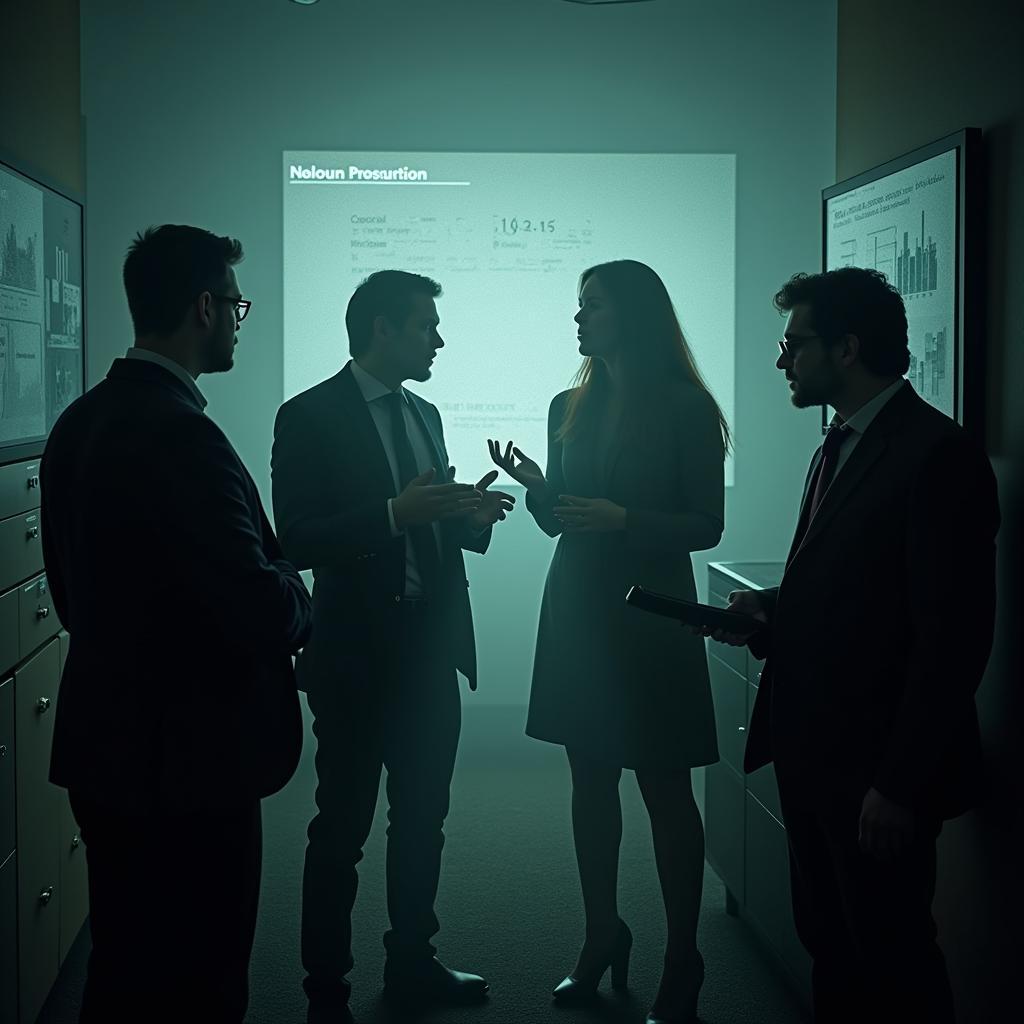Researcher Positionality plays a crucial role in shaping the research process, especially within the realm of paranormal investigations. Understanding how personal biases, experiences, and perspectives influence data collection and interpretation is essential for ensuring credible and meaningful findings. positionality of the researcher In the often subjective world of paranormal research, acknowledging and addressing researcher positionality is paramount.
What is Researcher Positionality and Why Does it Matter?
Researcher positionality acknowledges that researchers are not neutral observers. It refers to the researcher’s social and personal identities, including their background, beliefs, experiences, values, and perspectives. These factors can significantly impact how a researcher approaches their work, from the questions they ask to the way they interpret data. For instance, a researcher with a strong belief in the paranormal may interpret ambiguous evidence differently than a skeptic. This doesn’t invalidate their findings, but it highlights the need for transparency and critical self-reflection.
The Influence of Personal Beliefs and Experiences
Our personal experiences shape how we view the world. A researcher who has had a personal paranormal experience may be more inclined to interpret ambiguous data as evidence of paranormal activity. Conversely, a researcher with a scientific background might favor more conventional explanations. This is where positionality as a researcher comes into play, demanding a conscious awareness of how personal lenses color the research process.
Navigating Objectivity and Subjectivity in Paranormal Research
While complete objectivity may be an unattainable ideal, striving for it remains vital. Acknowledging researcher positionality is the first step. Researchers must actively reflect on their own biases and how they might be influencing their research. This includes being transparent about their beliefs and experiences in their research reports. This transparency allows others to critically evaluate the research and consider potential biases in the interpretations.
Practical Applications of Researcher Positionality
So, how does a paranormal researcher actively engage with their positionality? It involves a conscious and continuous process of self-reflection and critical analysis. Here are some key steps:
- Self-Reflection: Begin by examining your own beliefs, experiences, and values related to the paranormal. Consider how these factors might influence your approach to research.
- Transparency: Openly acknowledge your positionality in your research reports. Be upfront about your background and any potential biases. This allows readers to understand the context of your research.
- Methodological Rigor: Employ rigorous research methods to minimize bias. This includes using standardized procedures, collecting multiple forms of data, and seeking peer review.
How Does Positionality Affect Research Design?
Researcher positionality can significantly influence the research questions asked, the methods employed, and the interpretation of findings. For example, a researcher with a background in psychology might focus on the psychological aspects of paranormal experiences, while a researcher with a background in physics might concentrate on physical anomalies. Understanding what is positionality in research helps ensure a balanced and nuanced approach to investigation.
Embracing Positionality for Stronger Research
Embracing researcher positionality is not about eliminating bias entirely, but about acknowledging and managing it. By being aware of our own perspectives and how they shape our research, we can strive for greater rigor, transparency, and ultimately, more meaningful insights into the paranormal.
“Understanding your own biases is essential for conducting credible research, especially in a field as complex as paranormal investigation,” says Dr. Evelyn Reed, a leading researcher in parapsychology. “It’s not about being unbiased, but about being aware of your biases and how they might be influencing your work.”
 Embracing Positionality in Paranormal Studies
Embracing Positionality in Paranormal Studies
Acknowledging role of the researcher in qualitative research strengthens the research process, promoting more nuanced and insightful explorations. An example of positionality statement in qualitative research can offer practical guidance on how to incorporate this critical element into your research.
In conclusion, researcher positionality is a crucial factor in paranormal research. By acknowledging and addressing our own biases, we can strive for greater objectivity, transparency, and ultimately, a deeper understanding of the mysteries we seek to unravel. Researcher positionality is not a weakness to be overcome, but a strength to be leveraged for more robust and meaningful research.
FAQ
- What is researcher positionality?
- How does positionality affect Paranormal Research?
- Can a researcher be completely objective?
- How can researchers address their own biases?
- Why is transparency important in research?
- What are some examples of positionality statements?
- How can I learn more about researcher positionality?
Need support? Contact us 24/7: Phone: 0904826292, Email: research@gmail.com or visit us at No. 31, Alley 142/7, P. Phú Viên, Bồ Đề, Long Biên, Hà Nội, Việt Nam.